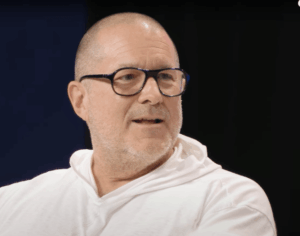Apple Hearing Study releases new data : Apple World Today

[ad_1]
On its Newsroom webpage, Apple notes that the Apple Hearing Study is sharing new data from thousands of participants across the U.S. in an effort to help people better understand their hearing health.
The Apple Hearing Study is one of the studies launched within the Research app that are helping democratize how medical research is conducted by giving Apple customers the ability to participate in research using technology they’ve already made a part of their everyday lives. The study is being conducted in collaboration with the University of Michigan School of Public Health, and data is being shared with the World Health Organization’s Make Listening Safe initiative.
By 2050, the WHO estimates more than 700 million people globally will experience profound hearing loss. Wednesday, March 3, is designated as World Hearing Day, amplifying a global call to address hearing loss and related issues. Reduced hearing can affect a person’s health and well-being in many ways, such as contributing to reduced communication, feelings of isolation, loneliness, and withdrawal, says Ren Minghui, assistant director-general of the World Health Organization.
The Apple Hearing Study allows users to participate and contribute to their long-term hearing health data from their Apple Watch and iPhone. The new insights generated leveraging this data demonstrate that 25% of participants experience a daily average environmental sound exposure (which can include traffic, machinery, public transport, and so on) that’s higher than the WHO recommended limit.
Also, nearly 50% of participants now work, or have previously worked, in a loud workplace. As noise exposure has shown an impact on hearing, it’s important to be aware of surroundings. Apple says that checking noise levels with the Noise app on Apple Watch can be an effective way to be more aware of sound exposure.
Average weekly headphone exposure for one in 10 participants is higher than the WHO recommended limit. While catchy tunes can be tempting, listeners should consider listening to music and other media at the lowest enjoyable volume, according to Rick Neitzel, associate professor of environmental health sciences at the University of Michigan School of Public Health.
About 10% of Apple Hearing Study participants have been diagnosed with hearing loss by a professional. Of these, 75% don’t use assistive support such as a hearing aid or cochlear implant, even though such devices can help reduce the impacts of hearing loss.
According to data collected using the study’s hearing tests, 20% of participants have hearing loss when compared to WHO standards, and 10% have hearing loss that’s consistent with noise exposure.
Nearly 50% of participants haven’t had their hearing tested by a professional in at least 10 years. And 25% of participants experience ringing in their ears a few times a week or more, which could be a sign of hearing damage. As Apple notes, everyone should have their hearing health checked periodically by a professional.
[ad_2]
Source link




